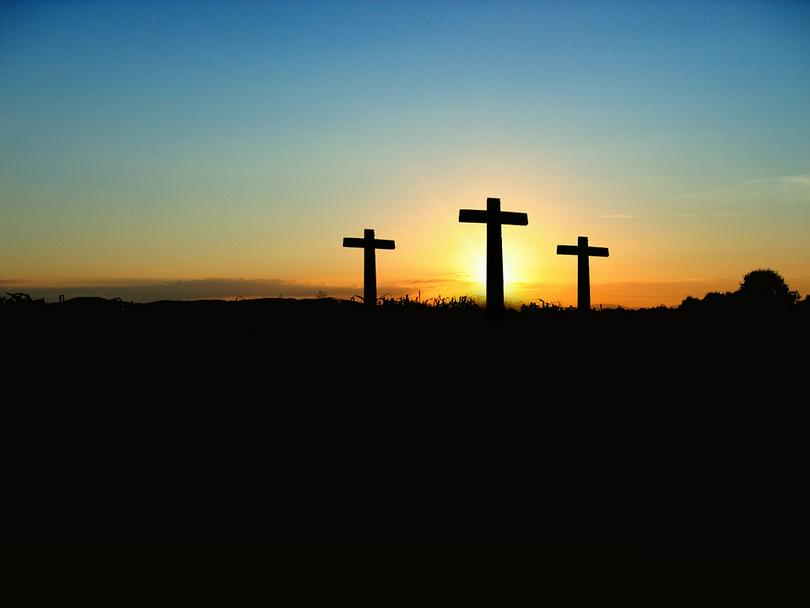Luke 23:33-43
When they came to the place called the Skull, they crucified him there, along with the criminals-one on his right, the other on his left. Jesus said, "Father, forgive them, for they do not know what they are doing." And they divided up his clothes by casting lots.
The people stood watching, and the rulers even sneered at him. They said, "He saved others; let him save himself if he is God's Messiah, the Chosen One."
The soldiers also came up and mocked him. They offered him wine vinegar and said, "If you are the king of the Jews, save yourself."
There was a written notice above him, which read: this is the king of the jews.
One of the criminals who hung there hurled insults at him: "Aren't you the Messiah? Save yourself and us!"
But the other criminal rebuked him. "Don't you fear God," he said, "since you are under the same sentence? We are punished justly, for we are getting what our deeds deserve. But this man has done nothing wrong."
Then he said, "Jesus, remember me when you come into your kingdom."
Jesus answered him, "Truly I tell you, today you will be with me in paradise."
Observation:
- Details of Jesus' crucifixion
Jesus was crucified at the place called the Skull or Golgotha, "along with the criminals-one on his right, the other on his left". "He said, "Father, forgive them, for they do not know what they are doing."
Mocking him, the people said, "He saved others; let him save himself if he is God's Messiah, the Chosen One." Even "one of the criminals who hung there hurled insults at him: 'Aren't you the Messiah? Save yourself and us!'"
- The attitude of the other criminal
The other criminal said to the first criminal, "We are punished justly, for we are getting what our deeds deserve. But this man has done nothing wrong." In his eyes, Jesus should not be crucified.
He said to Jesus, "Jesus, remember me when you come into your kingdom." Jesus answered him, "Truly I tell you, today you will be with me in paradise."
Explanation:
1. Jesus was against the will of the people
As ordinary people, we can't feel the mentalities of the soldiers, rulers and murders. Through the verses, we can see that the soldiers bent so solely upon profit that they divided up Jesus' clothes when he entered their life. Their ignorance was revealed before Jesus, but he asked God to forgive them for they did not know what they were doing, without regard for God.
The people who watched the scene there believed that Jesus deserved the punishment for he did many things that can be considered outrageous at that time. Thinking that this would end his life, they said in a mocking tone that let he take the privilege to protect himself if he was Christ, son of God and the king. They hit him when he was already down, rather than reflect on whether their deed was correct or not.
Nothing was more terrible than turning a blind eye to what they did and kept on mocking at him.
2. No fear of God v.s. fearing God
Those who have no fear of God don't have God in their mind. One of the criminals who hung with Jesus represents people who have no fear of God. In his eyes, Jesus was just like him. Death is the only destination of men, no matter he is a good man or bad, and there is no redemption.
Because sin meant punishment, he considered that he got what he deserved. When he murdered others, he predicted that life was a gamble; hence, there was no eternal life. So the murderer sneered at Jesus, saying that if he could not save himself as Christ, then why is he boasting about saving the world?
There is God in the eyes of people, who fear God.
The other criminal stands for those who fear God, saying to the first criminal, "Don't you fear God". God was in his mind. Fearing death, he knew his sin, the result of sin and the duty he should bear. He learned eternity, holding a higher level on the cognition of death that should not be the end of life. He said to Jesus, "Remember me when you come into your kingdom."
It can be seen that he was saved because he realized that he grasped the chance that Jesus is his salvation and that thought helped him gained eternal life.
Translated by Karen Luo














